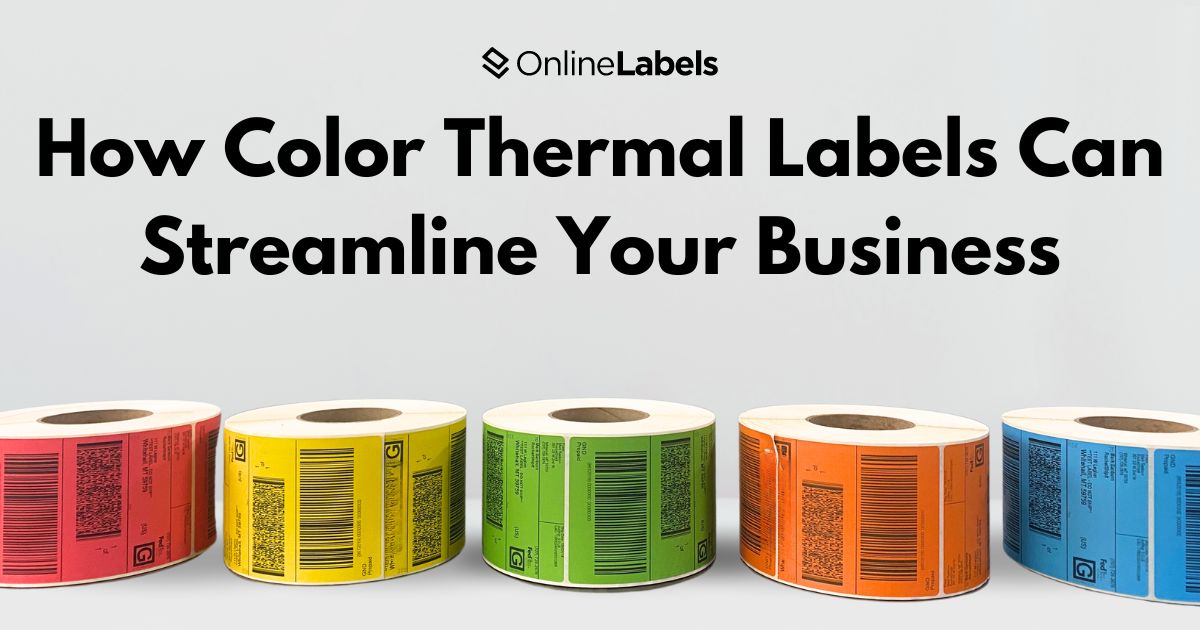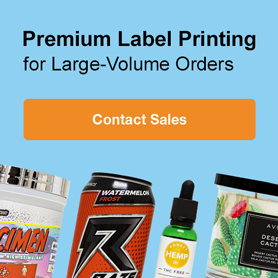How Color Thermal Labels Can Streamline Your Business

While many industries have long relied on traditional blank thermal labels, color thermal labels are emerging as a practical alternative that can revolutionize business operations. If you're considering upgrading your labeling system, this article will guide you through the advantages of color thermal labels and their business applications.
Understanding Color Thermal Labels
Color thermal labels are innovative materials that help draw attention. While standard thermal labels are limited to white colors, color thermal labels flood coated with a colored face stock. This unique feature enhances the visual appeal of labels by enabling more effective information communication through color coding.
Technology Behind Color Thermal Printing
These color roll labels use the same print technology as standard thermal labels. This means they can be used in almost any direct thermal printer that fits the label. Thermal printing is typically faster and consumes less waste than its sheeted counterparts. This can be a versatile solution for modern labeling needs such as inventory systems, warning signs for hazardous materials, and more!
Advantages of Color Thermal Labels
Color thermal labels have several features that make them suitable for various industries, from retail and food to manufacturing and logistics. Some of the most common benefits of these labels include:
- Vibrant colors: color thermal labels offer more eye-catching backgrounds that can make warehouse and logistic signage hard to ignore.
- Easy-to-read prints: the labels have been tested for various printed applications. Text remains legible, and barcodes remain scannable even against the colored backgrounds.
- Quick identification: color thermal labels can be used for color coding, which can help distinguish between different products or categories and reduce the chances of mistakes. This can help with warning signs and chemical products.
- Better differentiation: products with color thermal labels can be distinguished more easily and placed in different colored sections to provide categories with various meanings, improving organization.
Disadvantages of Color Thermal Labels
While color thermal labels offer many advantages, businesses need to weigh the potential disadvantages of these labels and how they can affect their specific needs.
- Restricted Availability of Specialized Materials: in contrast with other label products, color thermal labels are not weatherproof. If you believe your thermal labels will be in contact with moisture, we recommend using a weatherproof white thermal label.
- Low Heat Sensitivity color thermal labels are sensitive to heat and light, which can cause them to darken or fade over time. This makes them unsuitable for environments with higher temperatures or direct sunlight.
Company Applications of Color Thermal Labels
Color thermal labels can be used extensively for different types of businesses because they highlight important information, barcodes, and classifications in vibrant colors. Read below for some industries that currently benefit from color thermal labels:
Healthcare and Chemical Labeling
Overall, color thermal labels can offer healthcare companies a versatile, durable, and compliant labeling solution to increase safety and item recognition faster. Some of the ways that this type of label can help in this area include:
- Patient identification: in healthcare settings, color thermal labels can be used for patient identification weight bands, medication labels, and medical chartings.
- Chemical container labeling: in the chemical and manufacturing industries, color thermal labels are employed to label hazardous chemicals and chemical containers.
- Medication labeling and packaging: color thermal labels are utilized for labeling medication bottles, prescription labels, and pharmaceutical packaging in pharmacies and healthcare facilities.
Logistics and Warehousing Labeling
The distinguished color scheme of color thermal labels can make them valuable for inventory management and tracking in warehouses, distribution centers, and more. Color-coded labels can represent product categories, variations, or inventory status, facilitating accurate sorting and selection.
- Inventory management: color thermal labels can categorize inventory by type, priority, or storage requirements. This helps warehouse staff locate items faster and manage stock materials more effectively.
- Priority and status indication: using different colors to indicate the priority or status of items (urgent orders, back orders, inspections, etc.) helps prioritize tasks and manage workflows.
- Enhanced safety: potential hazards must be labeled in warehouse environments to maintain a safe working environment and ensure compliance with safety regulations.
Retail Industry
Retail businesses have different handling needs, such as inventory and pricing, that can be covered with color thermal labels. Some of the functions of color thermal labels in this category include but are not limited to:
- Pricing and discount labels: retailers can use color-coded labels to highlight prices, discounts, and promotional offers. This can draw attention to sales and special offers.
- Shipping labels: colored shipping labels can help distinguish between different priority levels at any visual distance. This includes urgent packages, standard delivery, and more.
- Product information and compliance: color thermal labels can provide essential product information, including ingredients, usage instructions, and safety warnings.
The Impact of Color Thermal Labels on Modern Business
Color thermal labels are emerging as a powerful tool for small businesses looking to improve their organization's identification and shipping process. These labels offer a versatile and efficient solution for everything from product labeling and inventory management to healthcare and chemical use. Whether in retail, healthcare, or manufacturing, upgrading to color thermal labels could be the game-changer for your business needs.



